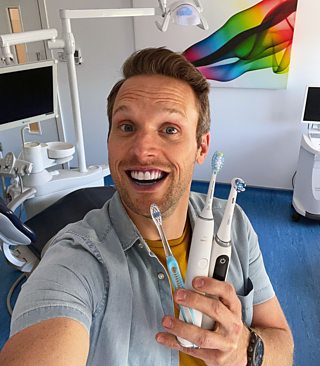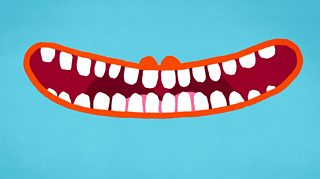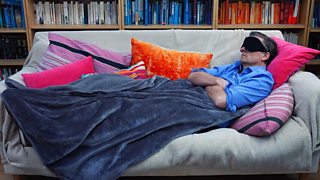Is an electric toothbrush the best way to clean your teeth?
Sliced Bread is testing more wonder products suggested by you to see if their claims stand up to scrutiny.
In a dental-themed episode, listener and manual toothbrush user Holly got in touch to ask presenter Greg Foot whether getting an electric brush might save her trips to the dentist in future. And would a more expensive brush – complete with AI and apps – really clean her teeth better than a cheaper electric one?
Greg takes to the dentist's chair to find out, testing brushes from the big brands and seeking advice from a dental expert who's been studying electric brushes since their inception and the consumer group Which?
So, which of Greg's seven main findings will help Holly decide whether or not to ditch her manual brush for an electric alternative? And if so, whether to opt for a top-end option or go cheap and cheerful?
1. The electric toothbrush market is dominated by two players – and they both use different technology
The big players in the electric toothbrush market are Oral-B and Philips. They both use different technology to clean your teeth. Oral-B's electric toothbrushes oscillate. They have small circular heads that rotate back and forth at about 70 times a second.
Philips's brushes use vibrations. The bristles on the head move side to side at very high speeds – around 250 times a second. Their top brushes are the Sonicare range. On the Philips site they claim the "sonic technology moves the brush head with up to 62,000 movements per minute, creating microbubbles that support cleaning between teeth".
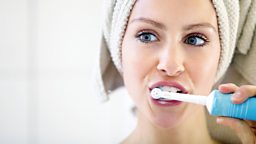
2. These technologies might feel different, but they create the same results
The two brushing technologies do create a physically different experience, with some describing the sonic method as more "intense". But what's the difference in terms of how well these differing models clean?
"Not very much," suggests Damien Walmsley, Professor of Restorative Dentistry in the University of Birmingham's School of Dentistry, who has been researching toothbrushes since around 1998. "There might be more evidence that the circular one, because it's a smaller head, and it's doing this counter oscillation, may be a little bit superior to the side to side. But there’s not a lot in it."
3. Prices can be eyewatering – but expensive doesn’t mean a better clean
The top Oral-B brush is the iO9, which retails at £500. On the Philips website the most advanced Sonicare goes for around £300. In stark contrast, Holly pays just 50p for a manual toothbrush. So, does a higher price point mean a better clean?
There's no direct link between price and quality.Which? report on electric toothbrushes
Earlier this year, Which? rated electric toothbrushes on factors like ease of use, comfort, battery life and how much plaque was removed. The top rated was a Philips brush costing £125. In second place was another Philips brush that cost close to £290. However, in third place was a Superdrug brush costing just £30. In fact, the review says, in terms of plaque removal, this budget option surpasses models that cost more than five times as much.
"While you can pay almost as much as you like for an electric toothbrush, there are some brilliant bargains out there as well," says Matt Knight, one of the research team at Which? "When you’re looking for a toothbrush, I’d be aware of the claims the toothbrush will clean your teeth better, because in many cases we found that isn’t necessarily the case."
The Which? review is clear: if you're looking for the toothbrush that cleans the best then "there's no direct link between price and quality".
4. But paying more will get you a better battery life
One thing that paying a bit more for a toothbrush will get you is a longer battery life.
"There’s not much more disappointing I would say than a toothbrush dying in your mouth in the morning," says Matt. "If you buy a more expensive toothbrush it might last a few more weeks even before you have to charge it than a cheaper one that you might have to charge every week, or at the cheaper end perhaps every five days or so."
5. You need to consider whether AI and apps are a help or a hindrance
The top-end brushes boast features including apps that give you feedback on your brushing technique. The iO, for example, has 3D tracking that shows how effective you are. "If you press too hard the light will light up red but also it will tell you you’re using too much pressure," explains dentist Dan Shaffer. You get a score – and even a 'medal'.
"The app is clearly a feature. It almost gamifies the experience," says Greg. But do we want to be looking at a phone at night, when we're trying to wind down?
"All the extra snazzy app features, those are things that the individual will decide if that's important to them or not and if they're prepared to pay extra,” says Matt.
6. Manual toothbrushes can be just as effective at removing plaque
Greg stops brushing his teeth for 24 hours and, under dentist Dan Shaffer's watch, uses a plaque disclosing tablet to dye the plaque in his mouth bright purple. He then cleans his teeth with a manual toothbrush on one side and an electric toothbrush – the Oral-B iO – on the other.
Afterwards, he's made good improvement on either side. "Even the manual toothbrushing has actually taken most of the plaque off your teeth," says Dan. At this level of detail, there is nothing to suggest that electric is better than manual.
Greg asks Professor Damien Walmsley what the scientific literature say about manual versus electric.
"I think there's very little difference between the two," he says. "The evidence tends to show that there’s a little bit more benefit towards the powered toothbrushes, but it's minimal and it's down to how you use it."
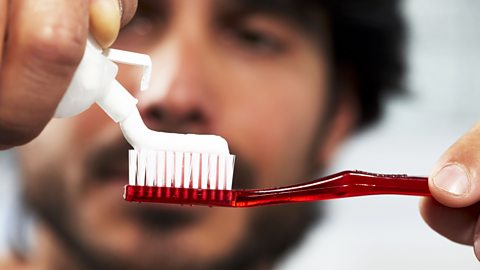
Does a manual brush work as well as an electic toothbrush?
Professor Damien Walmsley explains the differences between all the cleaning options.
7. Using an electric brush removes human error
If we concentrate when cleaning our teeth with a manual toothbrush it can be just as effective at removing plaque as a top of the range electric one. But what if we’re brushing when we’re tired or distracted? When weighing up manual versus electric, personal brushing technique must be a factor.
"In my view, professionally and personally, I think electric toothbrushes are probably one of the best things since sliced bread to help us in the fight against tooth decay," says dentist Dan. "Not only do they remove plaque but they do it by taking the human factor out."
In other words, whereas manual toothbrushing relies on really good technique, electric toothbrushes do most of that technique for you.
So, what will listener Holly do? Will she give her manual brush the brush off and go for an electric model, or stick with what she knows? Find out by listening here.
The information contained in this article was correct at the time of broadcast on 26 May, 2022.
-
![]()
A cultural history of your teeth
���˿��� Ideas tells the story of our search for the perfect smile.

More articles from Radio 4
-
![]()
Six things to know before buying running shoes
Will upgrading to an expensive pair help you to run faster?
-
![]()
Can drinking coffee make you fitter?
Exploring the effects on your exercise and endurance.
-
![]()
Electric cars: Eight things you need to know
Will swapping to a new electric vehicle make you greener?
-
![]()
Could a simple nap be the ultimate brain booster?
Dr Michael Mosley on the benefits of a daytime snooze.
